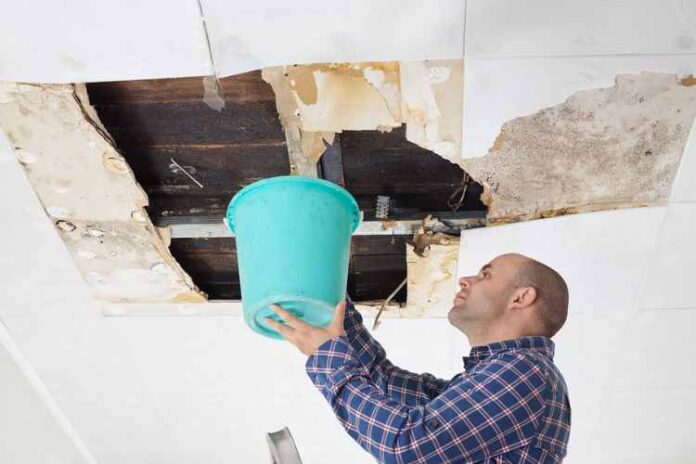Water damage is one of the most common natural disasters in the United States. It’s a serious issue that can cause structural damage to your home and make it difficult for you to sell it. If you’ve experienced water damage, it’s important to know how much this can affect your property value before deciding what to do next.
In this post, you shall learn how water damage affects the value of your property. Stay tuned.
What’s Water Damage
Water damage is any damage to property or objects caused by water. Water damage from a leaky toilet to a broken pipe can result from many situations. For example, bursts from old and worn-out pipes can cause flooding in your home, but so can heavy rain or storms.
Water damage may also be caused by plumbing problems that need professional help to fix. Typically, this happens when homeowners neglect their plumbing systems for too long, which leads to clogs and other issues that eventually lead to leaks and burst pipes.
Types Of Water Damage
Water damage isn’t always obvious to the naked eye. Water can seep into a home through the following:
- Walls (wet spots on walls or ceilings);
- Ceilings (water stains and cracks in ceilings);
- Floors (drywall buckling, peeling paint or wallpaper);
- Furniture (moldy furniture or woodwork); and so on.
Therefore, it’s important to have a professional assess if you suspect water damage to a property. For an example of a water damage specialist, click here. As a rule of thumb, always have a water damage issue resolved before it gets out of hand.
The Effects Of A Water Damaged Property
From mildew growth to mold infestation, there are many ways in which excess moisture in a house can affect those who live there—both physically and emotionally—and cause them stress over having such an issue at all.
In addition to causing physical problems for people, this type of issue could potentially result in lost productivity at work if someone needs additional time away from their job because of sickness.
The Prevalence Of Water Damage
Water damage affects nearly half of homeowners in the country. Water damage is the most common cause of home insurance claims and is a major reason why so many people file them every year.
Flooding from rainstorms can also lead to significant water damage if you don’t have proper protection measures in place. As such, it’s important to understand how this type of loss might affect your insurance rates or premiums and what steps you should take to protect yourself from those costs.
Cost Of Water Damage
The cost of water damage is high, especially regarding the loss of property value. Fortunately, water damage restoration professionals can help mitigate these losses by removing damaged materials and replacing them with new ones (if possible).
Structural Issues From Water Damage
Water damage from a flood or other problem can cause your home to collapse. Structural damage can include cracks in the walls, settling of the foundation, and other structural issues that make a property less desirable for residential use.
Signs of structural damage due to water include:
- Cracks in wood;
- Hard to open doors and windows;
- Damaged wires, pipes, and gas lines;
- Wet insulation;
- Wet electrical circuits;
- Rust seeping out of cracks;
- Cracks in foundation; and the like.
All these can significantly reduce your home’s value.
Foundation Issues From Water Damage
Water damage can cause foundation problems, which may require you to have your entire foundation replaced. This process is very costly and could completely demolish your home.
Signs of foundation issues due to water include:
- Moisture or dampness on the floors and walls;
- Mold or mildew in an area or throughout the property;
- Foundation cracks;
- Wall discoloration;
- Pungent or musty smell; and others.
If you come across any of these signs, have the property checked out for an assessment of the damage.
Mold Buildup Due To Water Damage
Mold is a major concern for all homeowners. The growth of mold can cause serious health issues for people with allergies or respiratory problems, as well as for pets that spend time in the home. If you suspect that your home has developed mold as a result of flooding, it’s important to act immediately and remove the mold before it spreads further and becomes even more difficult to eradicate.
Inspecting A Property Before Purchase
When you’re buying a home, it’s important to know whether or not there was water-related disrepair before you purchase the property. The reason being that a previous water event can have a significant impact on the value of your investment and how much money you can borrow when it comes time to pay for repairs.
For example: If you find out that there has been past water damage in your soon-to-be new home, but don’t realize how severe it was, then this could end up costing you down the road if things go wrong with your mortgage application.
This is because lenders will typically require an insurance policy on any property with more than three years’ worth of history of water damage claims within their walls or basement areas (which often means they won’t approve mortgages).
In addition, keep in mind that even if they do lend their services—and this is where negotiating power comes into play—you’ll likely be paying higher interest rates due to increased risk associated with lending money on such properties.
Conclusion
Water damage is one of the most common types of insurance claims, and it can be very costly. If you think that your home might have been affected by this issue, it’s a good idea to get in touch with an expert as soon as possible. This is especially true if you’re planning on selling or refinancing your property in the near future.


